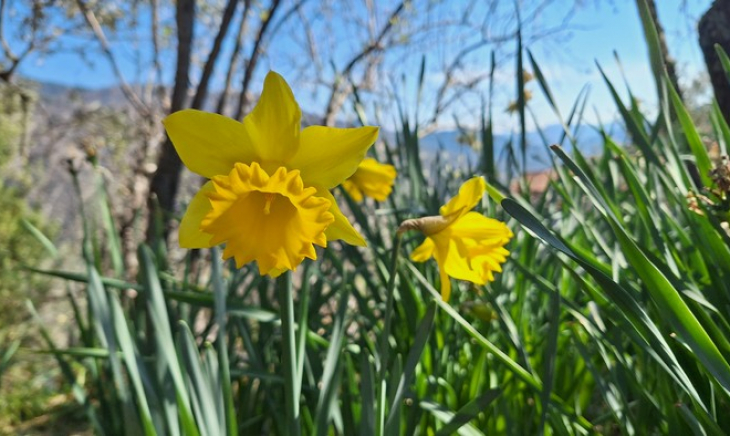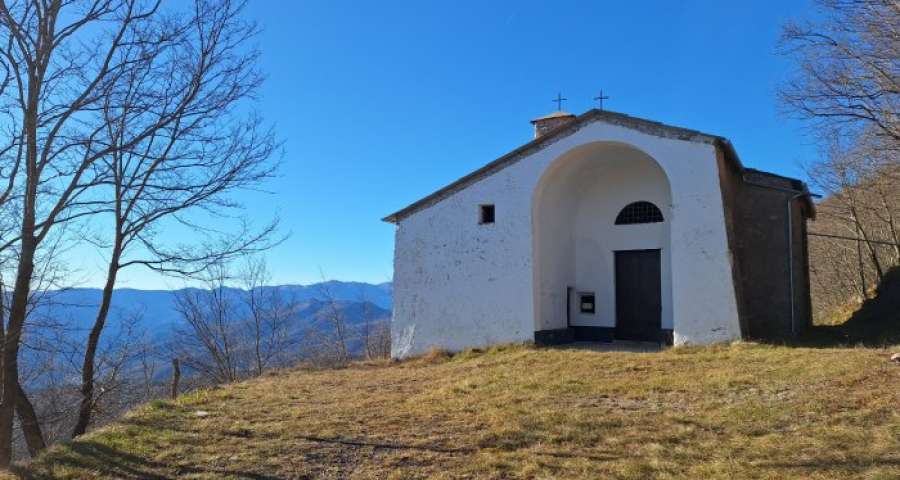Rebirth can be learned /11 - One must return to living everyday life with passion in order to regain possession of one's inclinations and freedom.
by Luigino Bruni
published in Città Nuova on 07/12/2024 - From the Città Nuova magazine, n.7/2024
Desire has become a word of our time. And it is understandable, because it is a word before life. It always is, but in a special and different way when desire takes place within a vocation and a spiritual community, when one is dealing with people who dedicate their lives to great ideals. In these experiences, the first gift that someone who begins a spiritual journey makes is the gift of their own desires. They freely choose to invest everything in the new Promise. They do not experience their response as sacrifice, or, even less, as loss.
In renouncing individual projects and desires, they see only an infinite possibility to blossom differently in a new Eden. Thus, today's new desire, which appears infinite, absorbs within itself all the other desires of yesterday, until one day it becomes the only desire to be kept. And so, the community's desire sacrifices the desires of the people in it. Our and the world's other stories and narratives lose their fascination and interest, we stop desiring them because they seem too small and trivial to us. The biodiversity of feelings, words, desires, interests, stories and of life is dramatically reduced, they are no longer interesting to us. We all desire the same Thing, and there is nothing else we want. We only desire the things that the new community desires and tells us we should desire. The community's desire becomes the only good, recommended desire.
In this process of giving away desires and wishes, which can last for decades, we initially have the impression that we are expanding our freedom, and this is what usually the case is. But then, paradoxically, as time passes, freedom begins to go less. Human communities born of ideals take the gift of individual desires and immolate it on the altar of community desire. The place of sacrificed individual desires is taken by the one collective desire. Why does this happen? Because charismatic intuitions know or sense that if people's desires remain free, they carry with them the risk of the end of the community, which can only live if it is desired most by its members and desired in the same ways and forms. The recording in writing of detailed rules and statutes is often also the unconscious manifestation of this need to control and direct the desires of present and future members. And so they forget that to keep human things alive there is no other guarantee than freedom-without-guarantees.
This process becomes decisive in generational transitions after the founders. The crises that manifest themselves in these passages are in fact an expression of the crisis of the desires donated and sacrificed by the members. Members of communities enter into crisis because they can no longer desire yesterday's Ideal, which is too attached to the physical persons of the founders. People accustomed to desiring only those things defined as desirable by the community, find their desire muscle atrophied. They no longer desire anything, and do not know how to live and write desirable stories. Hence the collective apathy of eros, of life, which is found especially in those people who had been most generous and pure. It is the time of anger and disappointment, of the desire to erase and forget the great collective and unique desire of yesterday, which is now perceived as deception and illusion.
What to do when going through these very painful and difficult phases? In such cases we must avoid mistaking cure for disease, which occurs when we invite people who are dull and apathetic enough to desire the same things again as always, presenting today's famine of desires as guilt. In reality, all that is needed is to resurrect desires. How? A good way is to start again (or begin) to listen to the daily stories of the families of our friends and colleagues, their ordinary stories of work, toil, love; to listen to the poor not in order to help them but because they really matter to us. To learn again to desire our work, to set a table, to take care of a plant. To long for the scent of the meadows, the light of the stars, the colour of the eyes of those who speak to us, the dog that wags its tail and cheers us on. To stop thinking about realities that we longed for yesterday but today no longer tell us much, including religious and spiritual realities. To return to the earth, to life, to friends, to nature, to the sea, to the wind. There we can learn the craft of living over again, and from there new desires, including collective ones, can be reborn. Desires as great again as those of the early days, perhaps just more adult and purified ones. Rising again requires learning.













